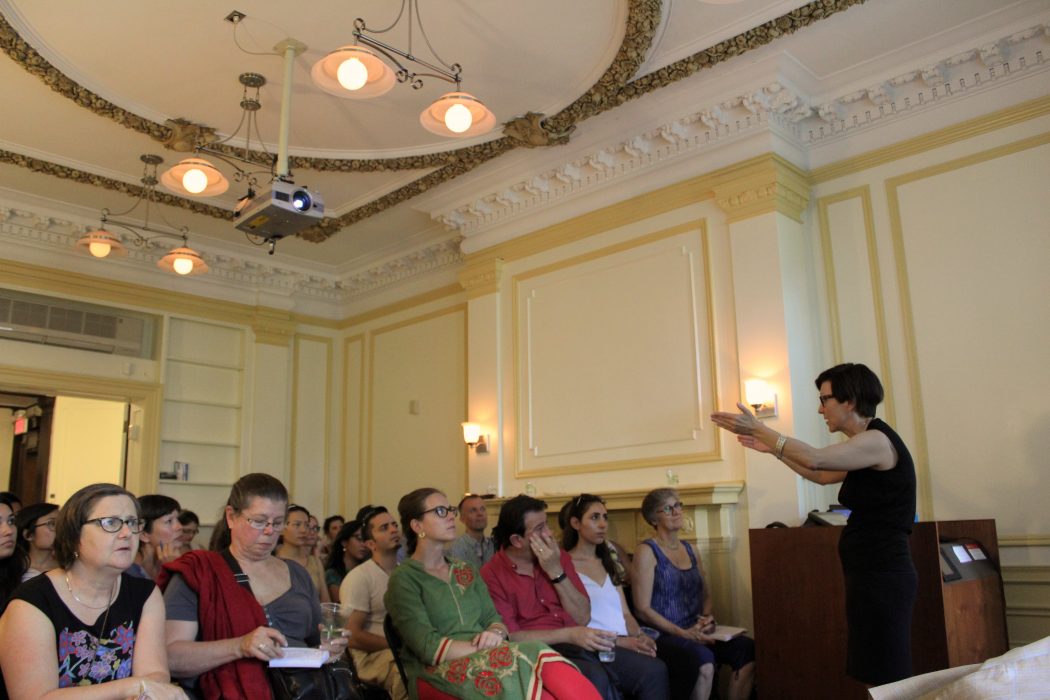On September 27, Dr. Cindy Blackstock, a member of the Gitksan First Nation and professor at the McGill School of Social Work, lectured at the McGill Institute for Health and Social Policy. Blackstock is the Executive Director and co-founder of the First Nations Child and Family Caring Society of Canada, and has made it her life’s work to help Canadian First Nations Children gain equal access to social services. She has authored over fifty publications and has collaborated with other Indigenous leaders to assist the United Nations Committee on the Rights of the Child in developing and adopting a General Comment on the Rights of Indigenous children.
Blackstock began her lecture, titled ‘Culturally Based Equity For Children: A Cornerstone for Reconciliation,’ by discussing the legacy of residential schools. She discussed how this history impacts Indigenous children, and spoke to how the Canadian government interacts with it. Blackstock contended that there has been a lack of government action on the implementation and delivery of social services for Indigenous children. She shared an anecdote of a discussion with a friend who works in child welfare, stating that “[Canadians] haven’t learned anything since 1895. There’s no requirement for social workers in Canada to [differentiate] between factors families can change on their own and factors that are in the hands of the government.”
Blackstock and the Caring Society advocate for culturally based equity, which refers to the just distribution of social services between children, regardless of their ancestry. Blackstock, the Society, and its supporters demand that the government provide non-discriminatory social welfare services to Indigenous children. They base their work on Jordan’s Principle.
Jordan’s Principle was named to honour Jordan River Anderson, a five-year-old Cree child who was born in 1999 with multiple disabilities. He spent several years of his life in the hospital unnecessarily while the provincial and federal governments fought over who would pay for his at-home care. He died in a Manitoba hospital without ever having lived in a family home. According to the Caring Society’s website, this never would have occurred if Anderson had been a non-native child living off a reserve.
“[Jordan’s Principle was] accepted unanimously, but was whittled down in the courts so that almost no children fit the criteria. You’d think this is something coming from residential schools, but this is within the last few years,” said Blackstock, referencing how harmful the exclusion of children from the policy can be. She contends that if Canadian citizens demand that the government treat Indigenous children equitably, “we’ll raise a generation of Indigenous kids who never have to recover and a generation of non-Indigenous kids who never have to say they’re sorry.”
Dr. Blackstock introduced the ‘I Am a Witness Campaign’, which invites individuals to learn about the Canadian government’s racial discrimination and decide for themselves if it is unjust. Blackstock emphasized that learning about a problem is not the same as solving it: “If you are facing an unethical situation and you have clear evidence that there’s a problem and you just say ‘I’ve done my work, now it’s someone else’s job,’ that’s unethical.”
Blackstock asked the audience to reflect on what level of discrimination they deem tolerable, and stated that racial discrimination by the government is completely unacceptable.
“How dare [Canadians] criticize the government of the United States when our government should be accountable for 163,000 Indigenous children,” concluded Blackstock, citing a dissonance between Canadian discourse surrounding public policy at home and in the United States. “All the odds are against [Indigenous communities], but I want this generation of kids to know one day that [Canadians] love them enough to fight for them.”
You can follow The Caring Society on Twitter and Facebook, and make your voice heard on issues of cultural equity by signing this petition.








